Module 3 Unit 6 Ancient stories Grammar课件+嵌入音频(共36张PPT)
文档属性
| 名称 | Module 3 Unit 6 Ancient stories Grammar课件+嵌入音频(共36张PPT) | 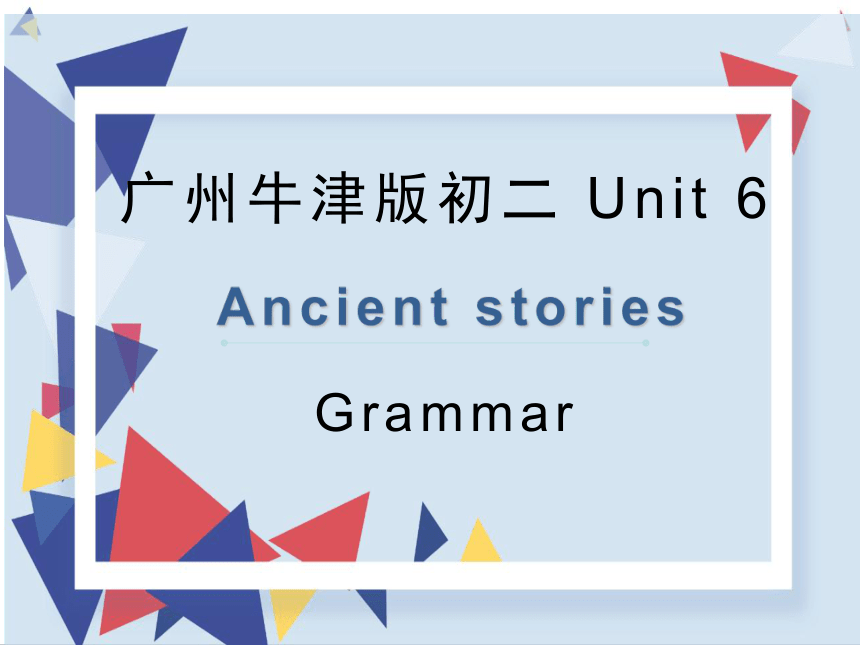 | |
| 格式 | pptx | ||
| 文件大小 | 6.3MB | ||
| 资源类型 | 教案 | ||
| 版本资源 | 牛津深圳版 | ||
| 科目 | 英语 | ||
| 更新时间 | 2021-09-21 08:57:22 | ||
图片预览

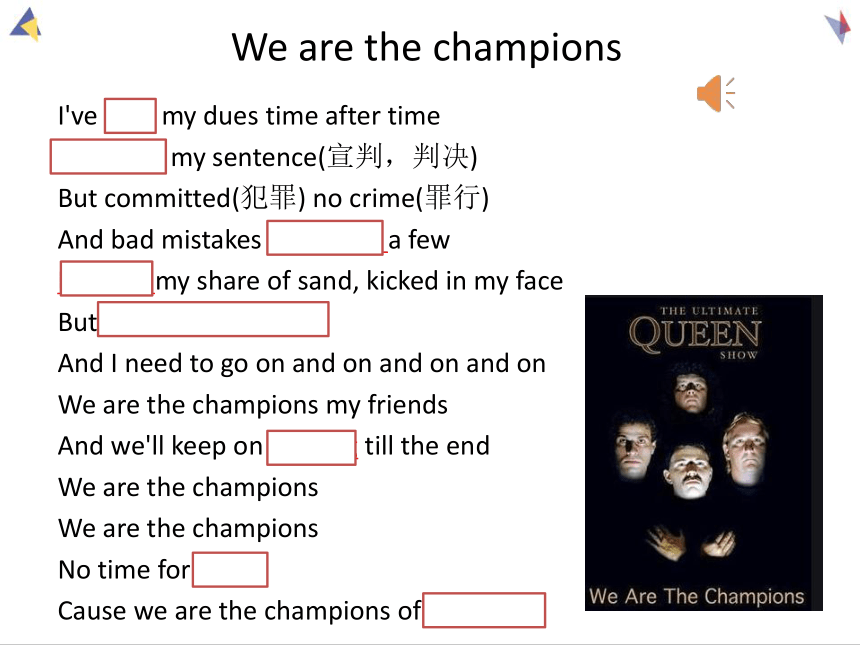
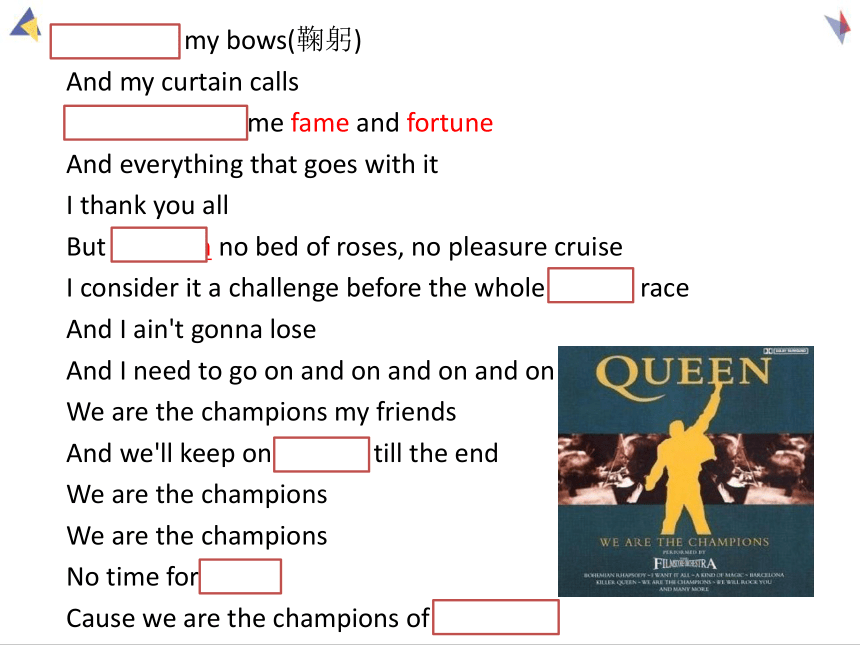
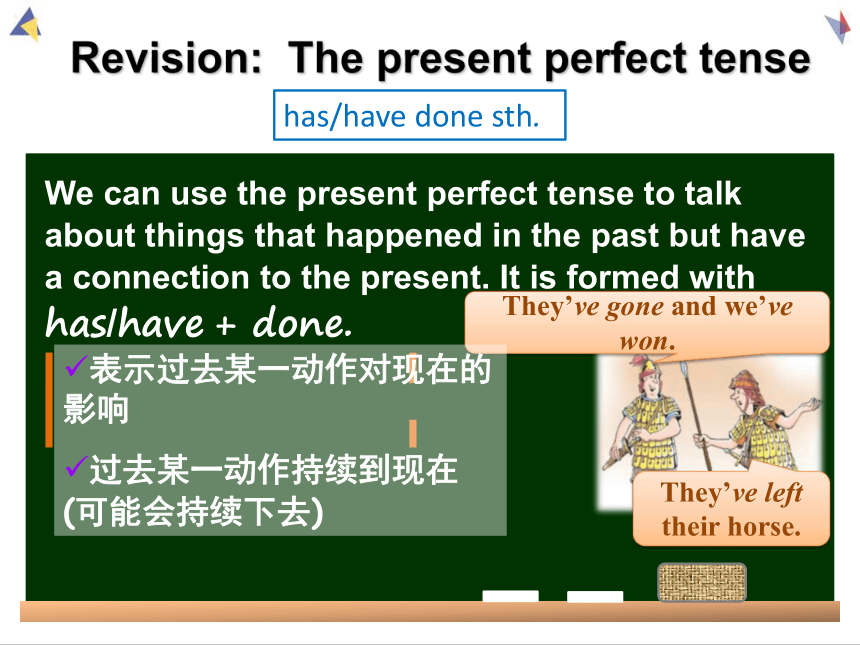
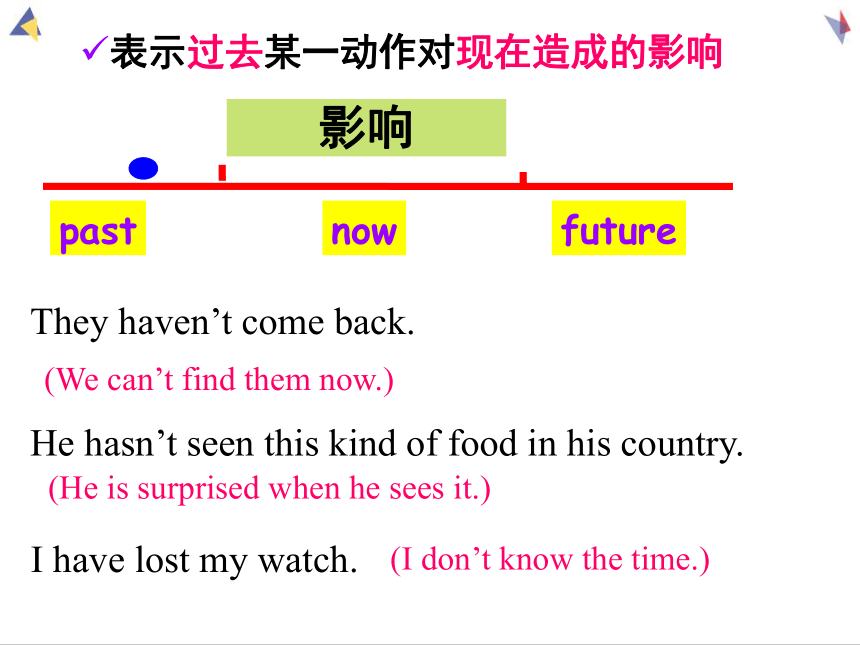
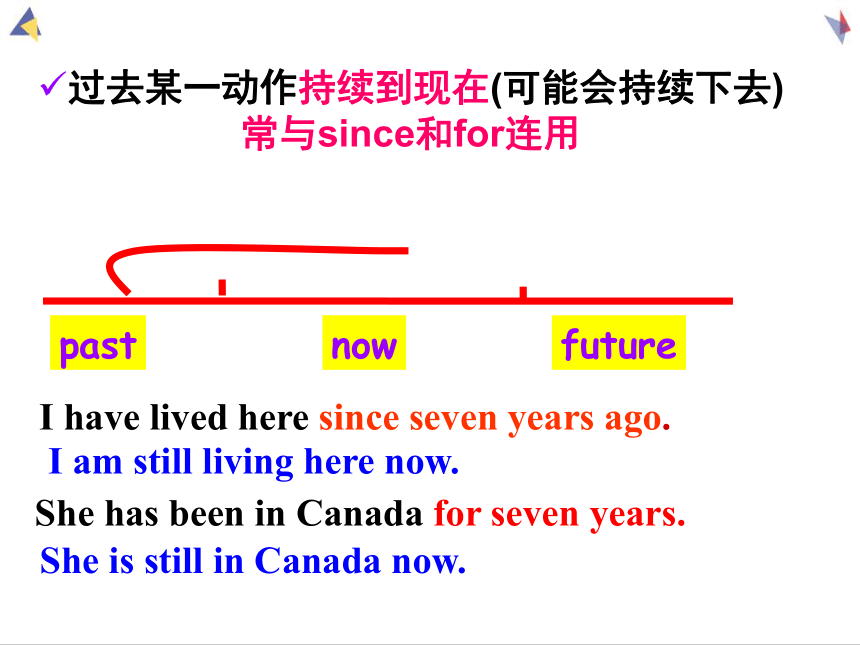
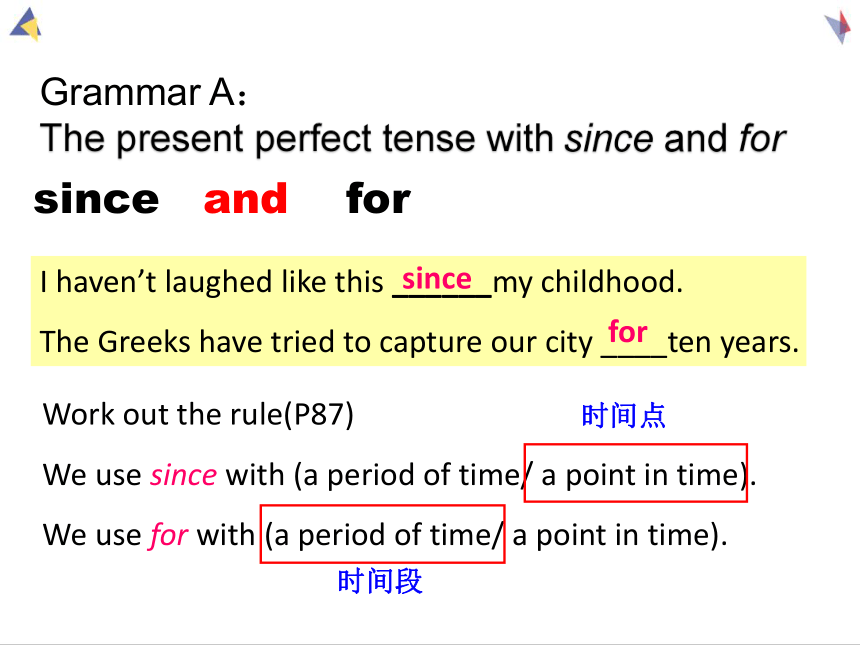
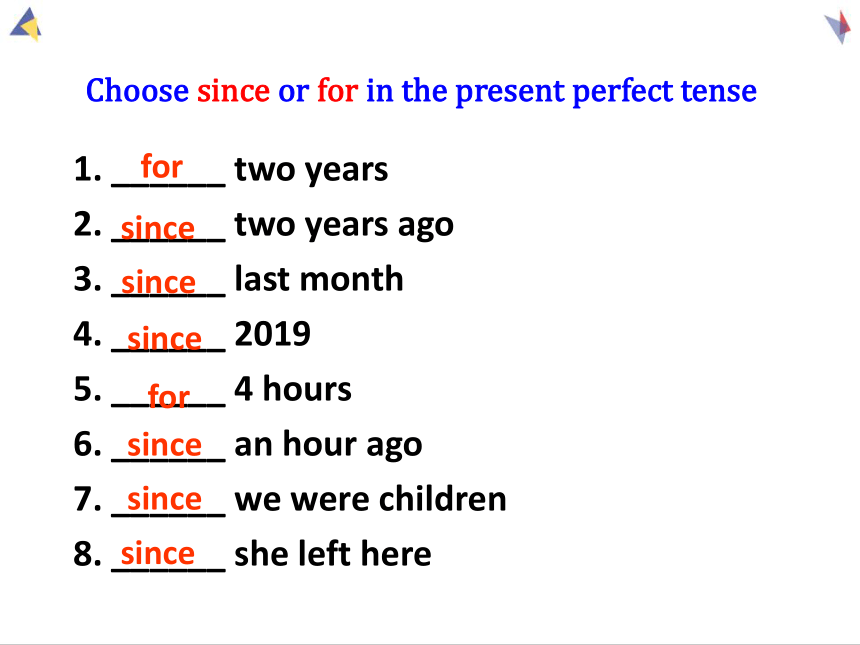
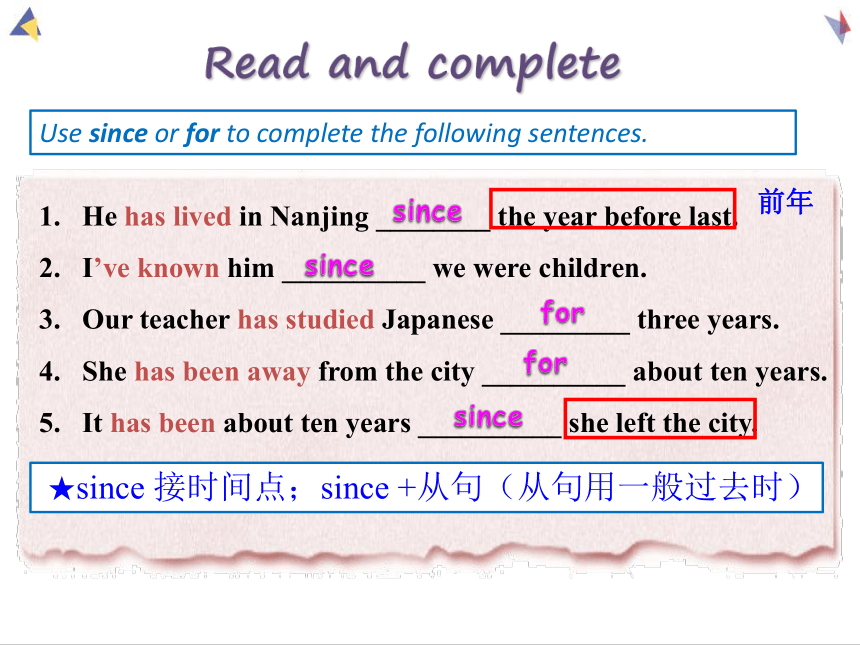
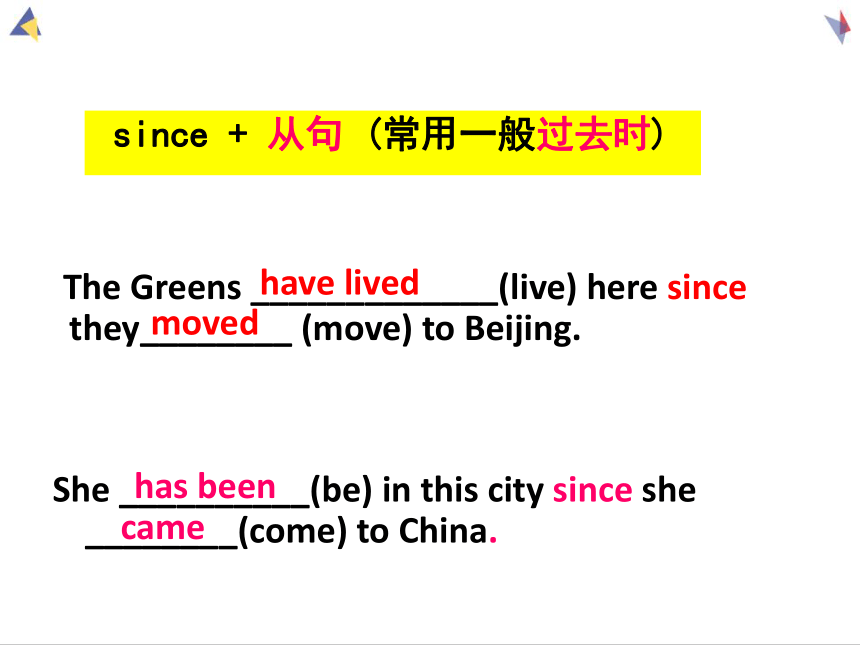
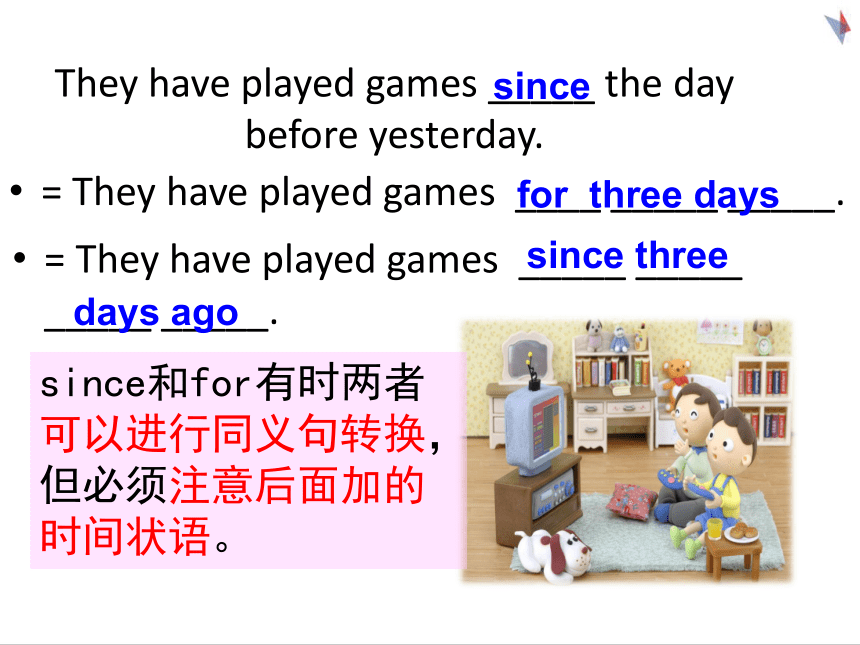
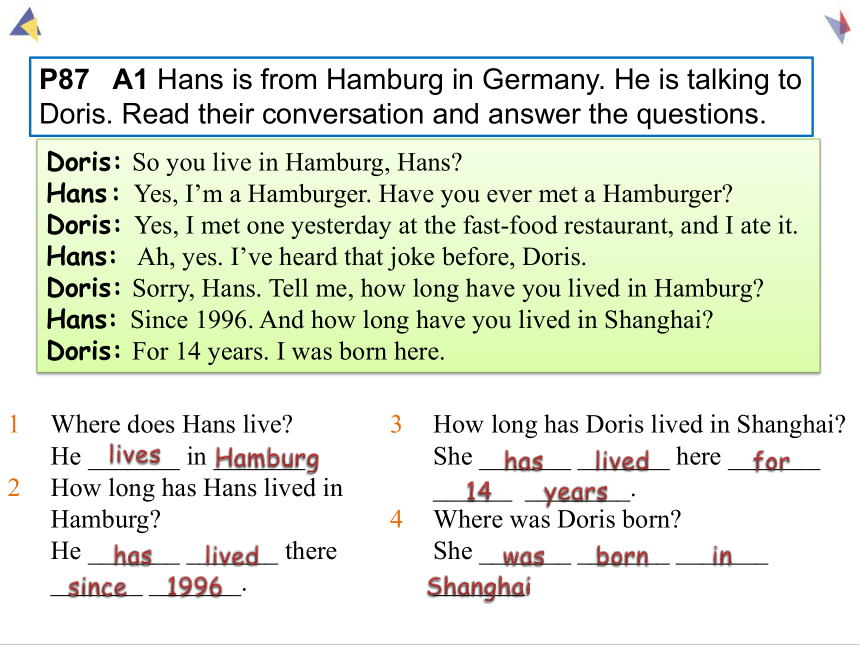
文档简介
(共36张PPT)
广州牛津版初二
Unit
6
Ancient
stories
Grammar
I've
paid
my
dues?time
after
time
I've
done
my
sentence(宣判,判决)
But
committed(犯罪)
no
crime(罪行)
And
bad
mistakes?I've
made
a
few
I've
had
my
share
of
sand,
kicked
in
my
face
But?I've
come
through
And
I
need
to
go
on
and
on
and
on
and
on
We
are
the
champions
my
friends
And
we'll
keep
on
fighting
till
the
end
We
are
the
champions
We
are
the
champions
No
time
for
losers
Cause
we
are
the
champions
of
the
world
We
are
the
champions
I've
taken
my
bows(鞠躬)
And
my
curtain
calls
You've
brought
me
fame
and
fortune
And
everything
that
goes
with
it
I
thank
you
all
But?it's
been
no
bed
of
roses,
no
pleasure
cruise
I
consider
it
a
challenge
before
the
whole
human
race
And
I
ain't
gonna
lose
And
I
need
to
go
on
and
on
and
on
and
on
We
are
the
champions
my
friends
And
we'll
keep
on
fighting
till
the
end
We
are
the
champions
We
are
the
champions
No
time
for
losers
Cause
we
are
the
champions
of
the
world
We
can
use
the
present
perfect
tense
to
talk
about
things
that
happened
in
the
past
but
have
a
connection
to
the
present.
It
is
formed
with
has/have
+
done.
They’ve
gone
and
we’ve
won.
They’ve
left
their
horse.
has/have
done
sth.
Revision:
The
present
perfect
tense
表示过去某一动作对现在的影响
过去某一动作持续到现在(可能会持续下去)
past
now
future
I
have
lost
my
watch.
He
hasn’t
seen
this
kind
of
food
in
his
country.
They
haven’t
come
back.
表示过去某一动作对现在造成的影响
影响
(We
can’t
find
them
now.)
(He
is
surprised
when
he
sees
it.)
(I
don’t
know
the
time.)
past
now
future
I
have
lived
here
since
seven
years
ago.
She
has
been
in
Canada
for
seven
years.
过去某一动作持续到现在(可能会持续下去)常与since和for连用
I
am
still
living
here
now.
She
is
still
in
Canada
now.
since
and
for
I
haven’t
laughed
like
this
______my
childhood.
The
Greeks
have
tried
to
capture
our
city
____ten
years.
Work
out
the
rule(P87)
We
use
since
with
(a
period
of
time/
a
point
in
time).
We
use
for
with
(a
period
of
time/
a
point
in
time).
since
for
时间点
时间段
Grammar
A:
The
present
perfect
tense
with
since
and
for
1.
______
two
years
2.
______
two
years
ago
3.
______
last
month
4.
______
2019
5.
______
4
hours
6.
______
an
hour
ago
7.
______
we
were
children
8.
______
she
left
here
for
since
since
since
for
since
since
since
Choose
since
or
for
in
the
present
perfect
tense
Read
and
complete
He
has
lived
in
Nanjing
________
the
year
before
last.
I’ve
known
him
__________
we
were
children.
Our
teacher
has
studied
Japanese
_________
three
years.
She
has
been
away
from
the
city
__________
about
ten
years.
It
has
been
about
ten
years
__________
she
left
the
city.
Use
since
or
for
to
complete
the
following
sentences.
since
since
for
for
since
★since
接时间点;since
+从句(从句用一般过去时)
前年
since
+
从句
(常用一般过去时)
The
Greens
_____________(live)
here
since
they________
(move)
to
Beijing.
She
__________(be)
in
this
city
since
she
________(come)
to
China.
have
lived
moved
has
been
came
They
have
played
games
_____
the
day
before
yesterday.
=
They
have
played
games
____
_____
_____.
since
for
three
days
=
They
have
played
games
_____
_____
_____
_____.
since
three
days
ago
since和for有时两者可以进行同义句转换,但必须注意后面加的时间状语。
P87
A1
Hans
is
from
Hamburg
in
Germany.
He
is
talking
to
Doris.
Read
their
conversation
and
answer
the
questions.
Where
does
Hans
live?
He
_______
in
_______.
How
long
has
Hans
lived
in
Hamburg?
He
_______
_______
there
_______
_______.
How
long
has
Doris
lived
in
Shanghai?
She
_______
_______
here
_______
______
________.
Where
was
Doris
born?
She
_______
_______
_______
_______.
Doris:
So
you
live
in
Hamburg,
Hans?
Hans
:
Yes,
I’m
a
Hamburger.
Have
you
ever
met
a
Hamburger?
Doris:
Yes,
I
met
one
yesterday
at
the
fast-food
restaurant,
and
I
ate
it.
Hans:
Ah,
yes.
I’ve
heard
that
joke
before,
Doris.
Doris:
Sorry,
Hans.
Tell
me,
how
long
have
you
lived
in
Hamburg?
Hans:
Since
1996.
And
how
long
have
you
lived
in
Shanghai?
Doris:
For
14
years.
I
was
born
here.
lives
Hamburg
has
lived
since
1996
has
lived
for
14
years
was
born
in
Shanghai
Hello.
I’m
Doris.
It’s
now
November
2012.
I’ve
lived
in
Shanghai
since
November
1998.
I’ve
studied
at
New
Point
Junior
High
School
for
one
year
and
two
months.
I’ve
been
in
the
Science
Club
for
one
year.
I
joined
the
Volleyball
Club
two
months
ago.
Doris
has
lived
in
Shanghai
for
four
years.
She
has
studied
at
New
Point
Junior
High
School
since
September
2010.
She
has
been
in
the
Science
Club
since
November
2011.
She
has
been
in
the
Volleyball
Club
for
two
months.
F
F
T
T
fourteen
P88
A2
Doris
is
talking
about
herself.
Read
what
she
says
and
then
decide
whether
the
following
sentences
are
T
(True)
or
F
(False).
Correct
any
false
ones.
2011
Hello,
I
am____.
I’m
from____.
I
____
___(live)
in
____
since____
and
I
have
been
in
_____
for
_____
years
.
I
___
____
(learn)
since
_____,
so
I
____
_____
(learn)
for____
years.
(
=your
hobby)
I
___
____(study)
in
our
school
since
I
was
____
years
old.
I
____
already_____
(know)
about
______
English
words.
I
____
_______(make)
plenty
of
friends
so
far.
Work
in
pairs:
Tell
your
partner
something
about
you
,
using
the
following
sentences
to
help
you.
当句子包含的时间状语含有since和for时,动作必须用延续性动词。
I
have
bought
the
book
for
a
week.
I
have
had
the
book
for
a
week.
buy是瞬间动词
have是延续性动词
瞬间动词----不能和一段时间连用
延续性动词----可以和一段时间连用
They
have
come
here
for
two
days.
They
have
been
here
for
two
days.
×
√
be是延续性动词
come是瞬间动词
×
√
瞬间动词--动作
延续性动词--
状态
die
be
over
leave/go
borrow
arrive/come/get
to/reach
open/close
end/finish/stop
join
marry
keep
be
away
be
here
be
open/closed
be
friends
be
in/a
member
of
be
dead
have
been
dead
have
kept
have
been
away
have
been
here
have
been
open/closed
have
been
over
have
been
in/a
member..
have
been
friends
buy
have
have
had
start/begin
be
on上演
have
been
on
make/become
friends
be
married
have
been
married
come
back/go
back/return
be
back
have
been
back
1.
The
zoo
_______
since
two
years
ago.
A.
closed
B.
has
closed
C.
has
been
closed
2.The
Greens
_____
Guilin
for
a
few
days.
A.
have
gone
to
B.
have
been
in
C.
have
come
in
3.
The
show
has__________
for
three
minutes.
A.
started
B.
been
on
C.
begun
D.
be
on
4.My
parents
______
in
Beijing
since
1995.
A.
are
living
B.
have
lived
C.
lived
5.His
grandma
______
for
2
years.
died
B.
has
died
C.
was
dead
D.
has
been
dead
C
B
B
B
D
Exercise
I
have
studied
History
for
two
years.
I
had
a
History
lesson
yesterday.
I
have
learnt
a
lot
about
Greek
history.
I
read
the
story
of
the
Trojan
War
last
week.
We
use
(the
present
perfect
tense/
the
simple
past
tense)
to
talk
about
a
past
experience
which
has
a
connection
to
the
present.
We
use
(the
present
perfect
tense/
the
simple
past
tense)
to
talk
about
a
completed
action
in
the
past.
Grammar
B:The
present
perfect
tense
and
the
simple
past
tense
I
have
lost
my
watch.
I
lost
my
watch.
----------
现在完成时表示过去发生的某一动作对现在造成的影响或结果,强调与现在的关系。
一般过去时只是表示动作是发生在过去,和现在并没有什么直接与必然的联系。
现在完成时
vs.
一般过去时
一般过去时的时间状语:
yesterday,
once,
last
week,
...
ago,
in
1980,
just
now等具体的过去时间状语。
现在完成时的时间状语:
for,
since,
so
far,
ever,
never,
just,
yet,
already,
before,
up
to
now等不确定的时间状语。
finished
finish
has
finished
He
…
his
homework.
have
finished
PRESENT
PERFECT
–
no
time
reference
(the
result
is
more
important)
gone
go
went
We
…
to
a
concert
last
week.
have
gone
PAST
SIMPLE
–
signal
word
“last
…
”
(it
tells
us
when
it
happened)
has
seen
have
seen
saw
I
…
Linda
at
the
cinema
yesterday.
seen
PAST
SIMPLE
–
signal
word
“yesterday”
(it
tells
us
when
it
happened)
has
…
eat
has
…
eats
has
…
eaten
She
…
already
…
breakfast.
has
…
ate
PRESENT
PERFECT
–
signal
word
“already”
(for
a
recently
finished
action)
has
leave
has
left
left
Bob
…
five
minutes
ago.
leave
PAST
SIMPLE
–
signal
word
“…ago”
(it
is
a
finished
past
action)
Did
/
arrived
Did
/
arrive
Have
/
arrived
…
Mike
and
Sam…
from
school
yet?
Has
/
arrived
PRESENT
PERFECT
–
signal
word
“yet”
(we
expect
something
to
happen
soon)
were
have
was
have
been
I
…
on
holidays
since
Friday
.
was
PRESENT
PERFECT
–
signal
word
“since”
(for
an
unfinished
past
action)
have
…
spoken
speak
has
…
spoken
My
teacher
…
just
…
with
my
parents.
spoke
PRESENT
PERFECT
–
signal
word
“just”
(for
a
recent
event)
hasn’t
get
up
haven’t
get
up
didn’t
get
up
He
…
early
this
morning.
didn’t
got
up
PAST
SIMPLE
–
“this
morning”
is
a
completed
past
period
(it’s
probably
after
midday
now)
has
…
bought
have
…
bought
did
…
buy
When
…
she
…
a
new
car?
did
…
bought
PAST
SIMPLE–
we
want
to
know
when
something
happened
Has
…
had
Did
…
have
Have
…
had
…
you
ever
…
a
car
accident?
Did
…
had
PRESENT
PERFECT
–
signal
word
“ever”
(for
past
experiences)
have
met
have
meet
met
I
…
my
wife
in
2010.
meet
PAST
SIMPLE
–
signal
word
“in
2010”
(for
a
finished
past
action)
P
89
B1
Read
the
following
conversation
between
the
captain
and
a
soldier
from
the
story
“The
Trojan
horse”.
Complete
it
with
the
correct
tenses
of
the
verbs
in
brackets.
have
gone
left
came
have
tried
have
won
have
left
didn’t
take
B2
Complete
the
diary
below
with
the
correct
tenses
of
the
verbs
in
brackets.
bought
went
opened
never
been
have
visited
have
seen
bought
have
read
Homework
广州牛津版初二
Unit
6
Ancient
stories
Grammar
I've
paid
my
dues?time
after
time
I've
done
my
sentence(宣判,判决)
But
committed(犯罪)
no
crime(罪行)
And
bad
mistakes?I've
made
a
few
I've
had
my
share
of
sand,
kicked
in
my
face
But?I've
come
through
And
I
need
to
go
on
and
on
and
on
and
on
We
are
the
champions
my
friends
And
we'll
keep
on
fighting
till
the
end
We
are
the
champions
We
are
the
champions
No
time
for
losers
Cause
we
are
the
champions
of
the
world
We
are
the
champions
I've
taken
my
bows(鞠躬)
And
my
curtain
calls
You've
brought
me
fame
and
fortune
And
everything
that
goes
with
it
I
thank
you
all
But?it's
been
no
bed
of
roses,
no
pleasure
cruise
I
consider
it
a
challenge
before
the
whole
human
race
And
I
ain't
gonna
lose
And
I
need
to
go
on
and
on
and
on
and
on
We
are
the
champions
my
friends
And
we'll
keep
on
fighting
till
the
end
We
are
the
champions
We
are
the
champions
No
time
for
losers
Cause
we
are
the
champions
of
the
world
We
can
use
the
present
perfect
tense
to
talk
about
things
that
happened
in
the
past
but
have
a
connection
to
the
present.
It
is
formed
with
has/have
+
done.
They’ve
gone
and
we’ve
won.
They’ve
left
their
horse.
has/have
done
sth.
Revision:
The
present
perfect
tense
表示过去某一动作对现在的影响
过去某一动作持续到现在(可能会持续下去)
past
now
future
I
have
lost
my
watch.
He
hasn’t
seen
this
kind
of
food
in
his
country.
They
haven’t
come
back.
表示过去某一动作对现在造成的影响
影响
(We
can’t
find
them
now.)
(He
is
surprised
when
he
sees
it.)
(I
don’t
know
the
time.)
past
now
future
I
have
lived
here
since
seven
years
ago.
She
has
been
in
Canada
for
seven
years.
过去某一动作持续到现在(可能会持续下去)常与since和for连用
I
am
still
living
here
now.
She
is
still
in
Canada
now.
since
and
for
I
haven’t
laughed
like
this
______my
childhood.
The
Greeks
have
tried
to
capture
our
city
____ten
years.
Work
out
the
rule(P87)
We
use
since
with
(a
period
of
time/
a
point
in
time).
We
use
for
with
(a
period
of
time/
a
point
in
time).
since
for
时间点
时间段
Grammar
A:
The
present
perfect
tense
with
since
and
for
1.
______
two
years
2.
______
two
years
ago
3.
______
last
month
4.
______
2019
5.
______
4
hours
6.
______
an
hour
ago
7.
______
we
were
children
8.
______
she
left
here
for
since
since
since
for
since
since
since
Choose
since
or
for
in
the
present
perfect
tense
Read
and
complete
He
has
lived
in
Nanjing
________
the
year
before
last.
I’ve
known
him
__________
we
were
children.
Our
teacher
has
studied
Japanese
_________
three
years.
She
has
been
away
from
the
city
__________
about
ten
years.
It
has
been
about
ten
years
__________
she
left
the
city.
Use
since
or
for
to
complete
the
following
sentences.
since
since
for
for
since
★since
接时间点;since
+从句(从句用一般过去时)
前年
since
+
从句
(常用一般过去时)
The
Greens
_____________(live)
here
since
they________
(move)
to
Beijing.
She
__________(be)
in
this
city
since
she
________(come)
to
China.
have
lived
moved
has
been
came
They
have
played
games
_____
the
day
before
yesterday.
=
They
have
played
games
____
_____
_____.
since
for
three
days
=
They
have
played
games
_____
_____
_____
_____.
since
three
days
ago
since和for有时两者可以进行同义句转换,但必须注意后面加的时间状语。
P87
A1
Hans
is
from
Hamburg
in
Germany.
He
is
talking
to
Doris.
Read
their
conversation
and
answer
the
questions.
Where
does
Hans
live?
He
_______
in
_______.
How
long
has
Hans
lived
in
Hamburg?
He
_______
_______
there
_______
_______.
How
long
has
Doris
lived
in
Shanghai?
She
_______
_______
here
_______
______
________.
Where
was
Doris
born?
She
_______
_______
_______
_______.
Doris:
So
you
live
in
Hamburg,
Hans?
Hans
:
Yes,
I’m
a
Hamburger.
Have
you
ever
met
a
Hamburger?
Doris:
Yes,
I
met
one
yesterday
at
the
fast-food
restaurant,
and
I
ate
it.
Hans:
Ah,
yes.
I’ve
heard
that
joke
before,
Doris.
Doris:
Sorry,
Hans.
Tell
me,
how
long
have
you
lived
in
Hamburg?
Hans:
Since
1996.
And
how
long
have
you
lived
in
Shanghai?
Doris:
For
14
years.
I
was
born
here.
lives
Hamburg
has
lived
since
1996
has
lived
for
14
years
was
born
in
Shanghai
Hello.
I’m
Doris.
It’s
now
November
2012.
I’ve
lived
in
Shanghai
since
November
1998.
I’ve
studied
at
New
Point
Junior
High
School
for
one
year
and
two
months.
I’ve
been
in
the
Science
Club
for
one
year.
I
joined
the
Volleyball
Club
two
months
ago.
Doris
has
lived
in
Shanghai
for
four
years.
She
has
studied
at
New
Point
Junior
High
School
since
September
2010.
She
has
been
in
the
Science
Club
since
November
2011.
She
has
been
in
the
Volleyball
Club
for
two
months.
F
F
T
T
fourteen
P88
A2
Doris
is
talking
about
herself.
Read
what
she
says
and
then
decide
whether
the
following
sentences
are
T
(True)
or
F
(False).
Correct
any
false
ones.
2011
Hello,
I
am____.
I’m
from____.
I
____
___(live)
in
____
since____
and
I
have
been
in
_____
for
_____
years
.
I
___
____
(learn)
since
_____,
so
I
____
_____
(learn)
for____
years.
(
=your
hobby)
I
___
____(study)
in
our
school
since
I
was
____
years
old.
I
____
already_____
(know)
about
______
English
words.
I
____
_______(make)
plenty
of
friends
so
far.
Work
in
pairs:
Tell
your
partner
something
about
you
,
using
the
following
sentences
to
help
you.
当句子包含的时间状语含有since和for时,动作必须用延续性动词。
I
have
bought
the
book
for
a
week.
I
have
had
the
book
for
a
week.
buy是瞬间动词
have是延续性动词
瞬间动词----不能和一段时间连用
延续性动词----可以和一段时间连用
They
have
come
here
for
two
days.
They
have
been
here
for
two
days.
×
√
be是延续性动词
come是瞬间动词
×
√
瞬间动词--动作
延续性动词--
状态
die
be
over
leave/go
borrow
arrive/come/get
to/reach
open/close
end/finish/stop
join
marry
keep
be
away
be
here
be
open/closed
be
friends
be
in/a
member
of
be
dead
have
been
dead
have
kept
have
been
away
have
been
here
have
been
open/closed
have
been
over
have
been
in/a
member..
have
been
friends
buy
have
have
had
start/begin
be
on上演
have
been
on
make/become
friends
be
married
have
been
married
come
back/go
back/return
be
back
have
been
back
1.
The
zoo
_______
since
two
years
ago.
A.
closed
B.
has
closed
C.
has
been
closed
2.The
Greens
_____
Guilin
for
a
few
days.
A.
have
gone
to
B.
have
been
in
C.
have
come
in
3.
The
show
has__________
for
three
minutes.
A.
started
B.
been
on
C.
begun
D.
be
on
4.My
parents
______
in
Beijing
since
1995.
A.
are
living
B.
have
lived
C.
lived
5.His
grandma
______
for
2
years.
died
B.
has
died
C.
was
dead
D.
has
been
dead
C
B
B
B
D
Exercise
I
have
studied
History
for
two
years.
I
had
a
History
lesson
yesterday.
I
have
learnt
a
lot
about
Greek
history.
I
read
the
story
of
the
Trojan
War
last
week.
We
use
(the
present
perfect
tense/
the
simple
past
tense)
to
talk
about
a
past
experience
which
has
a
connection
to
the
present.
We
use
(the
present
perfect
tense/
the
simple
past
tense)
to
talk
about
a
completed
action
in
the
past.
Grammar
B:The
present
perfect
tense
and
the
simple
past
tense
I
have
lost
my
watch.
I
lost
my
watch.
----------
现在完成时表示过去发生的某一动作对现在造成的影响或结果,强调与现在的关系。
一般过去时只是表示动作是发生在过去,和现在并没有什么直接与必然的联系。
现在完成时
vs.
一般过去时
一般过去时的时间状语:
yesterday,
once,
last
week,
...
ago,
in
1980,
just
now等具体的过去时间状语。
现在完成时的时间状语:
for,
since,
so
far,
ever,
never,
just,
yet,
already,
before,
up
to
now等不确定的时间状语。
finished
finish
has
finished
He
…
his
homework.
have
finished
PRESENT
PERFECT
–
no
time
reference
(the
result
is
more
important)
gone
go
went
We
…
to
a
concert
last
week.
have
gone
PAST
SIMPLE
–
signal
word
“last
…
”
(it
tells
us
when
it
happened)
has
seen
have
seen
saw
I
…
Linda
at
the
cinema
yesterday.
seen
PAST
SIMPLE
–
signal
word
“yesterday”
(it
tells
us
when
it
happened)
has
…
eat
has
…
eats
has
…
eaten
She
…
already
…
breakfast.
has
…
ate
PRESENT
PERFECT
–
signal
word
“already”
(for
a
recently
finished
action)
has
leave
has
left
left
Bob
…
five
minutes
ago.
leave
PAST
SIMPLE
–
signal
word
“…ago”
(it
is
a
finished
past
action)
Did
/
arrived
Did
/
arrive
Have
/
arrived
…
Mike
and
Sam…
from
school
yet?
Has
/
arrived
PRESENT
PERFECT
–
signal
word
“yet”
(we
expect
something
to
happen
soon)
were
have
was
have
been
I
…
on
holidays
since
Friday
.
was
PRESENT
PERFECT
–
signal
word
“since”
(for
an
unfinished
past
action)
have
…
spoken
speak
has
…
spoken
My
teacher
…
just
…
with
my
parents.
spoke
PRESENT
PERFECT
–
signal
word
“just”
(for
a
recent
event)
hasn’t
get
up
haven’t
get
up
didn’t
get
up
He
…
early
this
morning.
didn’t
got
up
PAST
SIMPLE
–
“this
morning”
is
a
completed
past
period
(it’s
probably
after
midday
now)
has
…
bought
have
…
bought
did
…
buy
When
…
she
…
a
new
car?
did
…
bought
PAST
SIMPLE–
we
want
to
know
when
something
happened
Has
…
had
Did
…
have
Have
…
had
…
you
ever
…
a
car
accident?
Did
…
had
PRESENT
PERFECT
–
signal
word
“ever”
(for
past
experiences)
have
met
have
meet
met
I
…
my
wife
in
2010.
meet
PAST
SIMPLE
–
signal
word
“in
2010”
(for
a
finished
past
action)
P
89
B1
Read
the
following
conversation
between
the
captain
and
a
soldier
from
the
story
“The
Trojan
horse”.
Complete
it
with
the
correct
tenses
of
the
verbs
in
brackets.
have
gone
left
came
have
tried
have
won
have
left
didn’t
take
B2
Complete
the
diary
below
with
the
correct
tenses
of
the
verbs
in
brackets.
bought
went
opened
never
been
have
visited
have
seen
bought
have
read
Homework
